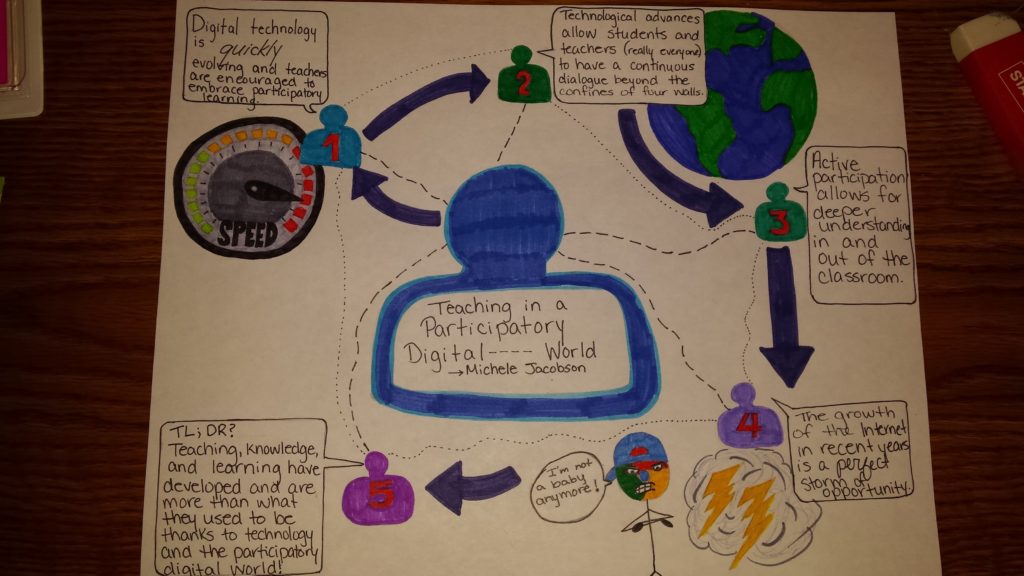What’s that you say? We can connect with anybody in the world and even have continuous dialogue that doesn’t confine us to the four walls we are sitting between?!
For my second multimedia reflection, I read Dr. Michele Jacobson’s article and watch Henry Jenkins’ video. You will have to forgive me because I am in NO WAY an artist, but I, hesitantly, decided to try my hand at a sketch-note/mindmap hybrid:

I really enjoyed reading Dr. Jacobson’s article, and I agree with most, if not all, of it. We have grown up during the growth and expansion of the Internet (please see my little teenager Chrome stick figure on the bottom right of my picture) and it has developed, probably exponentially, since we were kids. I definitely agree that technology, social media (maybe not all social media), and the Web 2.0 initiatives have a place in education to come capacity.
I am the first person to admit that I prefer working face-to-face with someone rather than online, but in a world where people are insanely busy with school, work, family life, etc., getting together to work on an assignment or project often falls by the wayside. That is when the participatory digital world comes in. This digital world allows us to stay connected, and continue conversations or brainstorming that would not have taken place if we did not have participatory platforms. Every single group project or assignment I have had in the first two months of this degree has taken place on a Google Doc. It was the most practical way to work on things, and I was able to work on my portion away from school, just like my other group members.
I think that we, as future teachers, should start exploring now, kind of like what we did last week with our Twitter chat, and see how we can implement certain platforms, emphasis on the participatory nature of them, into our future classrooms. Using the participatory digital world, quite literally, has global outreach (hence the not-drawn-to-scale globe in the top right corner of my artifact). I was tweeting with a person in Egypt last week about the topic of algorithms and privacy, or lack thereof. When I was in high school, that would not have even been a possibility because digital tech and social media were banned in classrooms. Now they are welcome, to a degree, and I think that that is the future of education and that as long as used responsibly, digital technologies and Web 2.0 platforms will be extremely beneficial to the future of education.
– Courtney M.
